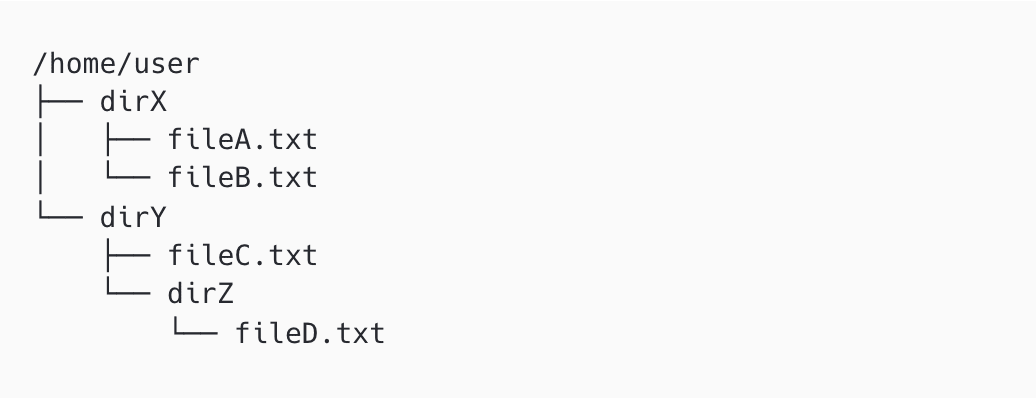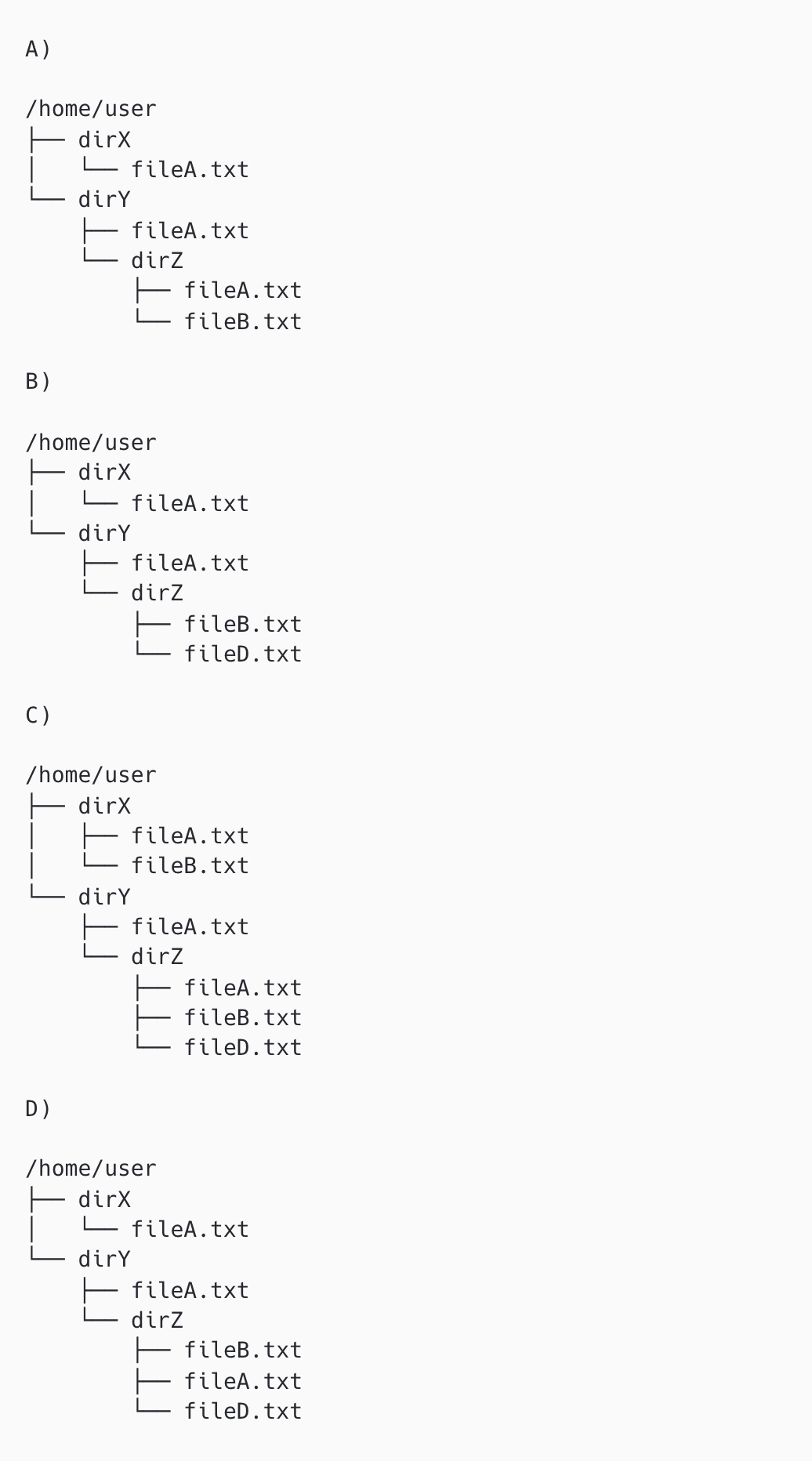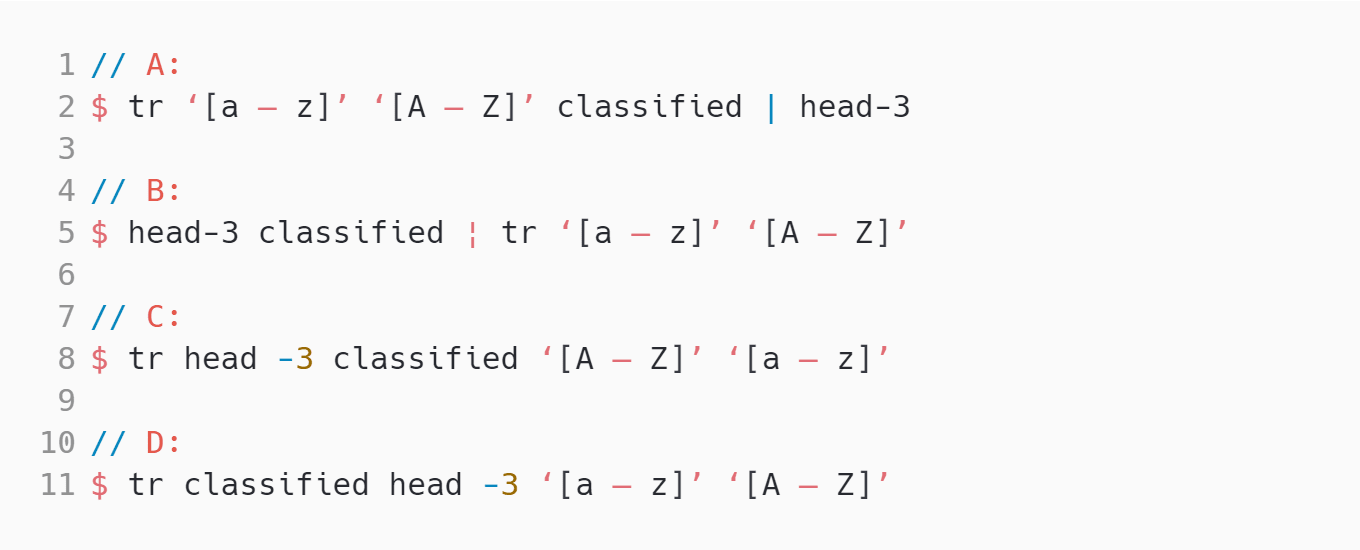Linux commands: Linux commands refer to the set of instructions and utilities that are used to interact with the Linux operating system. It is important to measure this skill in the test as a good understanding of Linux commands is fundamental for effectively working with the Linux environment and performing various tasks.
Bash scripting: Bash scripting involves writing and executing scripts using the Bash (Bourne Again SHell) programming language. This skill should be measured in the test as it is essential for automating repetitive tasks, writing custom scripts, and enhancing productivity in Linux system administration and automation.
File system management: File system management entails working with files and directories, organizing data, setting permissions, and managing storage in a Linux operating system. Evaluating this skill is crucial as it reflects the candidate's ability to efficiently navigate, manipulate, and maintain the file system, which is a fundamental aspect of Linux administration and operational tasks.
Process management: Process management involves monitoring, controlling, and managing the execution of running programs or processes in a Linux environment. Measuring this skill in the test is important as it demonstrates the candidate's proficiency in handling processes, managing system resources, troubleshooting issues, and optimizing system performance.
Shell scripting: Shell scripting refers to writing scripts or programs using shell languages (such as Bash) to automate tasks and enhance the functionality of the command-line interface. This skill should be assessed as it determines the candidate's ability to create reliable and efficient scripts, enhance productivity, and automate complex tasks in Linux system administration and software development.
Networking and security: Networking and security in the context of the test involve knowledge and understanding of Linux networking concepts, configuring network settings, securing network communications, and implementing security measures. Evaluating this skill is important as it reflects the candidate's proficiency in networking administration, network troubleshooting, and maintaining a secure Linux environment.
Regular expressions: Regular expressions, also known as regex, are a powerful tool for searching and manipulating patterns of text data. Assessing this skill is important as it shows the candidate's ability to efficiently work with advanced text search and manipulation techniques, which are frequently utilized in tasks like log analysis, data extraction, and text processing in a Linux environment.
Text processing: Text processing involves performing operations on textual data, such as filtering, searching, modifying, and analyzing information. Measuring this skill is crucial as it reflects the candidate's proficiency in utilizing various text processing utilities, commands, and scripting techniques to handle large amounts of data and extract meaningful insights or perform specific operations in a Linux environment.
System administration: System administration encompasses managing, configuring, and maintaining the overall operation and health of a Linux system. Evaluating this skill is important as it signifies the candidate's proficiency in tasks like system installation, user management, package management, monitoring, troubleshooting, and overall system performance optimization in a Linux environment.
Environment variables: Environment variables are dynamic values that can affect the behavior and configuration of the operating system or applications. This skill should be measured in the test as it reflects the candidate's understanding of how environment variables are utilized, configured, and customized in a Linux environment to control system behavior, define paths, set preferences, and enhance overall system functionality.




























































